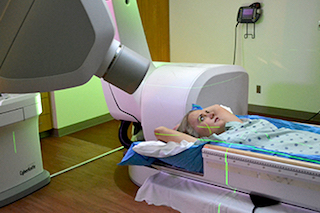
In recent years, the quest for sustainable living has prompted a significant shift towards more energy-efficient home solutions. Among these, energy efficient electric heating has emerged as a key player, offering a viable alternative to traditional heating methods. This shift not only contributes to environmental conservation but also presents considerable cost savings over time. This article delves deep into the world of energy efficient electric heating, exploring its benefits, technologies, and practical implementation strategies to maximize both comfort and sustainability in our homes and workplaces.
The Evolution of Electric Heating
Electric heating has been around for over a century, but its efficiency and environmental impact have drastically evolved. Early electric heaters were often criticized for their high energy consumption and inefficiency. However, advancements in technology have revolutionized the electric heating landscape, making it a more attractive and sustainable option.
Modern energy efficient electric heating systems utilize sophisticated technology to minimize energy waste and maximize heat production. These systems are designed to provide consistent, comfortable warmth while consuming less power than their predecessors. The key to their efficiency lies in the smart design, advanced materials, and innovative heating methods that ensure optimal performance.
Benefits of Energy Efficient Electric Heating
- Cost Savings: One of the most compelling reasons to switch to energy efficient electric heating is the potential for cost savings. Efficient systems use less electricity to produce the same amount of heat, which translates to lower energy bills. Additionally, many regions offer incentives and rebates for homeowners who upgrade to energy-efficient systems.
- Environmental Impact: Reducing energy consumption directly correlates with a decrease in carbon emissions. By opting for energy efficient electric heating, homeowners and businesses can significantly reduce their carbon footprint, contributing to a healthier planet.
- Comfort and Convenience: Modern electric heating systems are designed to provide consistent and controllable heat. Features such as programmable thermostats and zone heating allow for precise temperature management, ensuring optimal comfort in every room.
- Safety: Electric heating systems are generally safer than combustion-based systems. They eliminate risks associated with gas leaks, carbon monoxide poisoning, and other hazards linked to traditional heating methods.
- Durability and Maintenance: Energy efficient electric heating systems often have fewer moving parts compared to conventional heating systems, leading to lower maintenance requirements and longer lifespan.
Types of Energy Efficient Electric Heating Systems
- Heat Pumps: Heat pumps are among the most energy-efficient electric heating solutions available. They work by transferring heat from the outside air or ground into the home, using electricity to move the heat rather than generate it. This process is highly efficient and can provide up to four times the amount of energy they consume.
- Radiant Heating: Radiant heating systems, including underfloor heating and infrared panels, provide warmth by heating objects and people directly rather than the air. This method reduces heat loss and increases efficiency, offering a comfortable and evenly distributed heat source.
- Electric Boilers: Modern electric boilers are much more efficient than older models. They convert electricity directly into heat and can be integrated with existing central heating systems to provide a reliable and efficient heat source.
- Storage Heaters: These systems take advantage of off-peak electricity tariffs by storing heat during low-cost periods and releasing it when needed. Modern storage heaters are highly insulated and can retain heat for extended periods, reducing overall energy consumption.
- Smart Heaters: Equipped with advanced technology, smart heaters can be controlled remotely via smartphones and are capable of learning user preferences. This allows for precise temperature control and reduces energy waste.
Implementing Energy Efficient Electric Heating in Your Home
- Insulation and Sealing: Before installing an energy efficient electric heating system, it’s crucial to ensure your home is well-insulated and properly sealed. Good insulation prevents heat loss, making any heating system more effective and efficient.
- Thermostat Settings: Utilize programmable thermostats to set temperatures according to your daily routine. Lowering the thermostat by a few degrees when you’re asleep or away can result in significant energy savings without sacrificing comfort.
- Zone Heating: Consider installing a zone heating system that allows you to control the temperature of individual rooms. This way, you only heat the areas you use, reducing overall energy consumption.
- Regular Maintenance: Regular maintenance of your heating system ensures it operates at peak efficiency. This includes cleaning filters, checking for leaks, and ensuring all components are functioning correctly.
- Smart Technology: Invest in smart home technology that can help you monitor and control your energy usage. Devices like smart thermostats, energy monitors, and automated heating controls can significantly enhance the efficiency of your heating system.

The Future of Energy Efficient Electric Heating
As technology continues to advance, the future of energy efficient electric heating looks promising. Innovations in renewable energy sources, such as solar and wind power, are set to further enhance the sustainability of electric heating systems. Integration with smart home systems and the Internet of Things (IoT) will enable even greater control and efficiency, making it easier for homeowners to optimize their energy use.
Moreover, ongoing research into new materials and heating technologies promises to push the boundaries of efficiency even further. For instance, phase-change materials (PCMs) and nanomaterials are being explored for their potential to improve heat storage and transfer, paving the way for even more advanced and efficient heating solutions.
Conclusion
Energy efficient electric heating represents a significant step towards a sustainable and comfortable future. By embracing these advanced heating technologies, we can enjoy the warmth and comfort of our homes while minimizing our environmental impact and reducing energy costs. As the world continues to prioritize sustainability, energy efficient electric heating stands out as a smart and responsible choice for both residential and commercial applications.
Investing in energy efficient electric heating is not just about immediate benefits; it’s about contributing to a larger movement towards a greener, more sustainable planet. With the right choices and technologies, we can all play a part in creating a more energy-efficient future.


